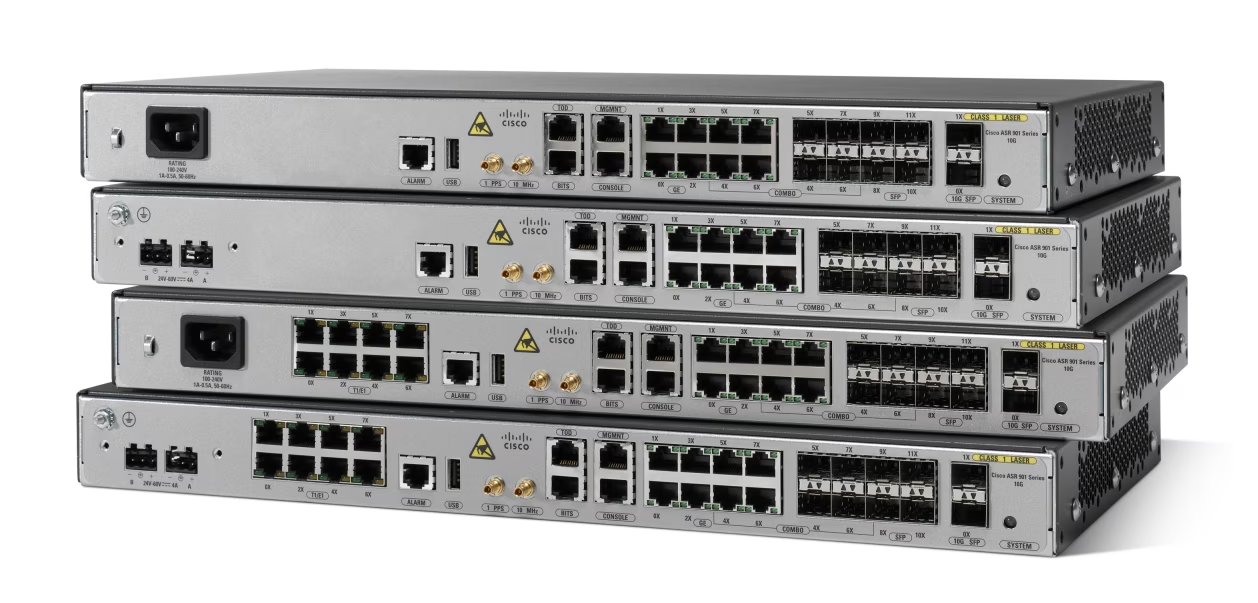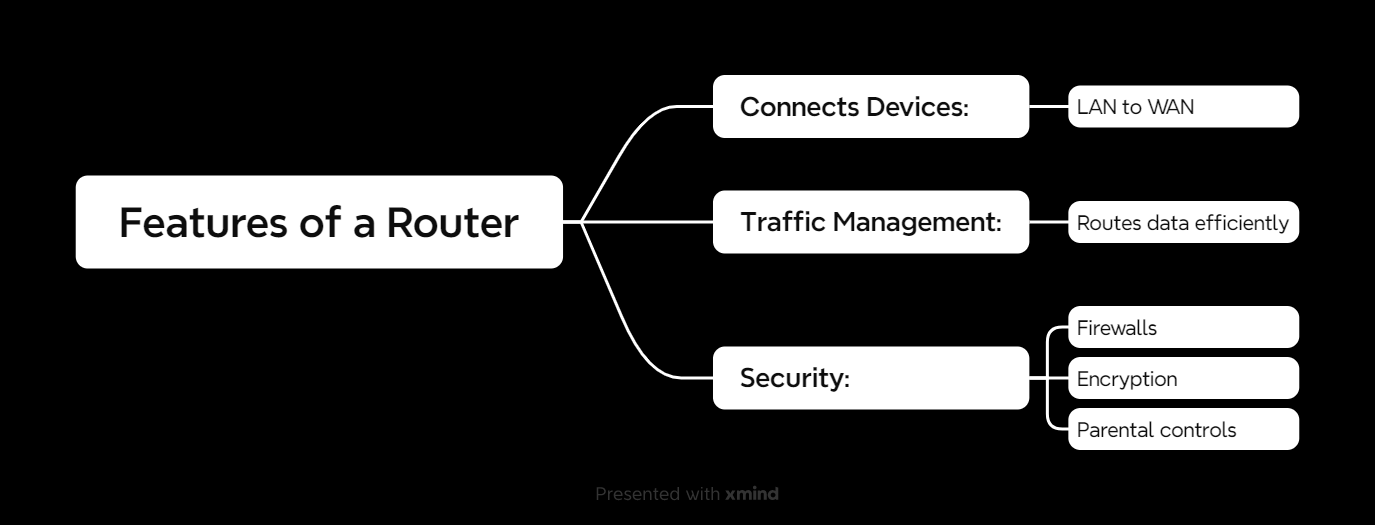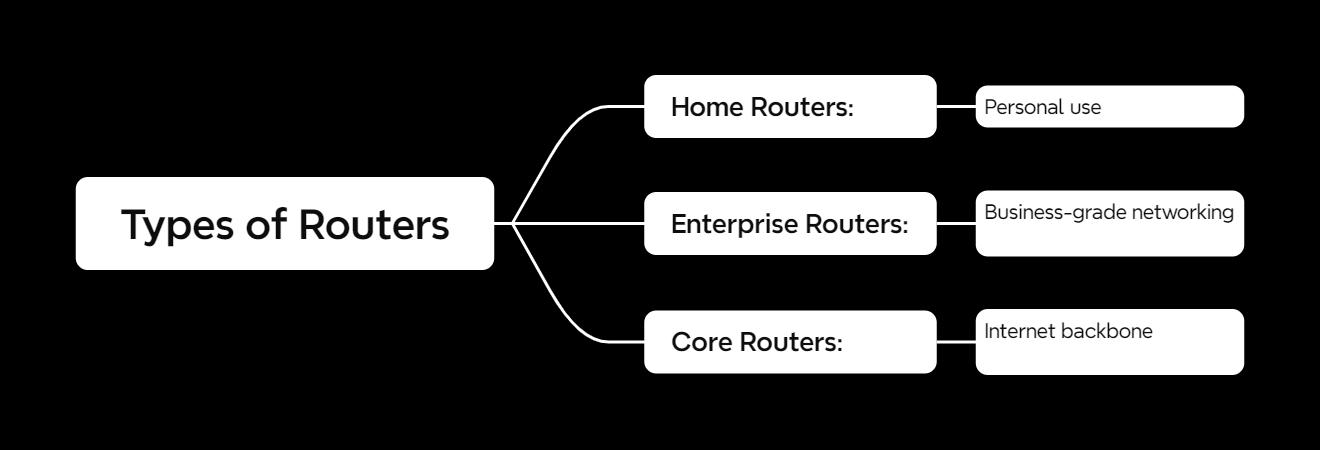Let’s talk about routers. They’re the reason you can scroll Instagram, stream Netflix, or crush it in online games. But how do they actually work, and why are they so important? Let’s break it down in a way that even your tech-averse friend can understand.
What’s a Router, Anyway?
A router is a networking device that connects different networks together. Think of it like a traffic cop, directing data (traffic) from your devices to the internet and back.
In short: No router? No internet.
Key Features of a Router
1. Connecting Devices
A router connects your local devices (like your PC, smartphone, or smart TV) to the wider world (the internet). It translates local network communication into a language your ISP understands.
2. Traffic Management
Routers figure out the best path for data to travel between devices and networks. They also balance loads to ensure smooth operation.
3. Security Features
Modern routers include firewalls, encryption, and even parental controls to keep your network secure and under control.
How Does a Router Actually Work?
1. Data Analysis
When data packets arrive at your router, it reads the IP address to figure out where they’re coming from and where they need to go.
2. Routing the Data
The router determines the best route for the packets. For example, if you’re streaming a video, it sends the data straight to your device instead of bouncing it around unnecessarily.
3. Communication
Routers interface with your ISP’s modem to get you connected to the internet. They also communicate with your devices to ensure everything stays synced.
Types of Routers
1. Home Routers
These are the ones sitting on your shelf right now. They’re perfect for connecting personal devices to the internet.
2. Enterprise Routers
These bad boys are built for businesses, with features like advanced security, better traffic handling, and support for more devices.
3. Core Routers
These are the giants of the networking world, used by ISPs to manage the flow of data across the internet.
Why Are Routers So Important?
Without a router, your devices wouldn’t know how to talk to each other or access the internet. They keep data flowing efficiently, protect your network from external threats, and enable modern life as we know it.




